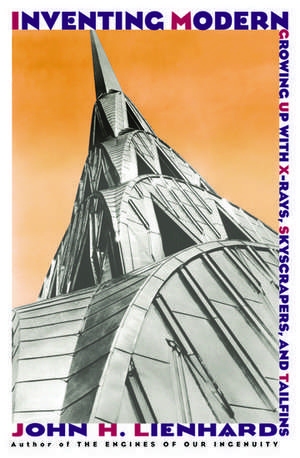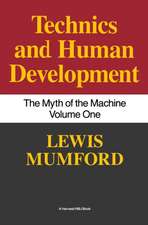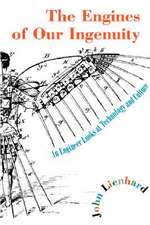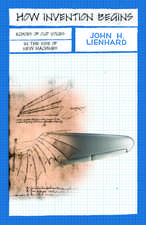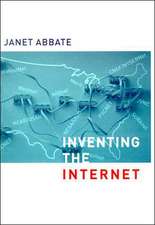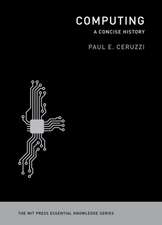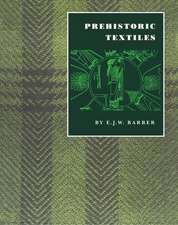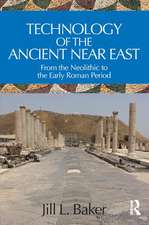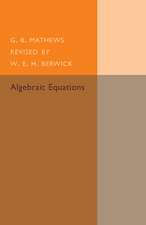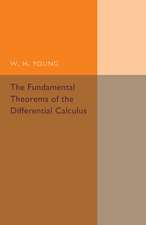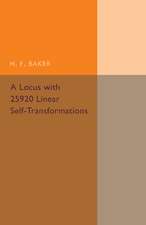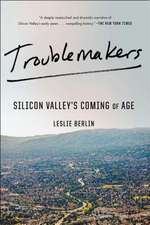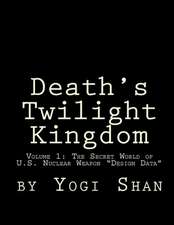Inventing Modern: Growing up with X-Rays, Skyscrapers, and Tailfins
Autor John H. Lienharden Limba Engleză Paperback – 23 iun 2005
Preț: 229.66 lei
Nou
Puncte Express: 344
Preț estimativ în valută:
43.97€ • 45.24$ • 37.06£
43.97€ • 45.24$ • 37.06£
Carte tipărită la comandă
Livrare economică 18-24 februarie
Preluare comenzi: 021 569.72.76
Specificații
ISBN-13: 9780195189513
ISBN-10: 0195189515
Pagini: 304
Ilustrații: numerous halftones, b/w line
Dimensiuni: 227 x 153 x 21 mm
Greutate: 0.42 kg
Editura: Oxford University Press
Colecția OUP USA
Locul publicării:New York, United States
ISBN-10: 0195189515
Pagini: 304
Ilustrații: numerous halftones, b/w line
Dimensiuni: 227 x 153 x 21 mm
Greutate: 0.42 kg
Editura: Oxford University Press
Colecția OUP USA
Locul publicării:New York, United States
Recenzii
"From Buck Rogers to the Chrysler Airflow, Lienhard considers a particular strain of American Modernism through the personal lens of his own boyhood. While this book reflects a fascination with how things work, it also is a memoir, replete with subjective, idiosyncratic and deeply nostalgic associations."--Los Angeles Times
"A delightful personal memoir, a provocative cultural history, and an instructive guide to science and technology--a splendid book that entertains, challenges and informs in equal measure."--Samuel C. Florman, author of The Existential Pleasures of Engineering
"This is vintage Lienhard: intellectually cosmopolitan and curious, wide-ranging and almost breathless, with an ability to knit together events and people into a mosaic that, like all good history, is greater than the sum of its parts, and all in a voice that is so rhythmical that the reader is drawn along almost involuntarily."--Richard J. Blackett, Andrew Jackson Professor of History, Vanderbilt University
"Lienhard is a story-teller who informs and enchants. His book carries us on a riveting journey with twentieth-century technologies that created the worldview called modernity. In learning about these roots of modern, we learn about ourselves."--Stanley Joel Reiser, Griff T. Ross Professor of Humanities and Technology in Health Care at the University of Texas Health Science Center at Houston
" 'A good read' is not the first phrase that comes to mind in discussing most academic books, but in this case, it is well-deserved praiseA more fascinating, informative, or enjoyable introduction to science, technology, and modern science would be hard to imagine."--Choice
"A delightful personal memoir, a provocative cultural history, and an instructive guide to science and technology--a splendid book that entertains, challenges and informs in equal measure."--Samuel C. Florman, author of The Existential Pleasures of Engineering
"This is vintage Lienhard: intellectually cosmopolitan and curious, wide-ranging and almost breathless, with an ability to knit together events and people into a mosaic that, like all good history, is greater than the sum of its parts, and all in a voice that is so rhythmical that the reader is drawn along almost involuntarily."--Richard J. Blackett, Andrew Jackson Professor of History, Vanderbilt University
"Lienhard is a story-teller who informs and enchants. His book carries us on a riveting journey with twentieth-century technologies that created the worldview called modernity. In learning about these roots of modern, we learn about ourselves."--Stanley Joel Reiser, Griff T. Ross Professor of Humanities and Technology in Health Care at the University of Texas Health Science Center at Houston
" 'A good read' is not the first phrase that comes to mind in discussing most academic books, but in this case, it is well-deserved praiseA more fascinating, informative, or enjoyable introduction to science, technology, and modern science would be hard to imagine."--Choice
Notă biografică
John H. Lienhard is the M.D. Anderson Emeritus Professor of Mechanical Engineering and History at the University of Houston. He has worked as an engineer and educator since 1951, and is well known in thermal engineering. He has also written about, and taught, history since the 1970s. He is the author and host of The Engines of Our Ingenuity, a weekday radio essay on the history of creativity and invention (heard on many public radio stations), and he is author of the book by the same name.
